No-deal Brexit 'will see more waste going to landfill'
- Published
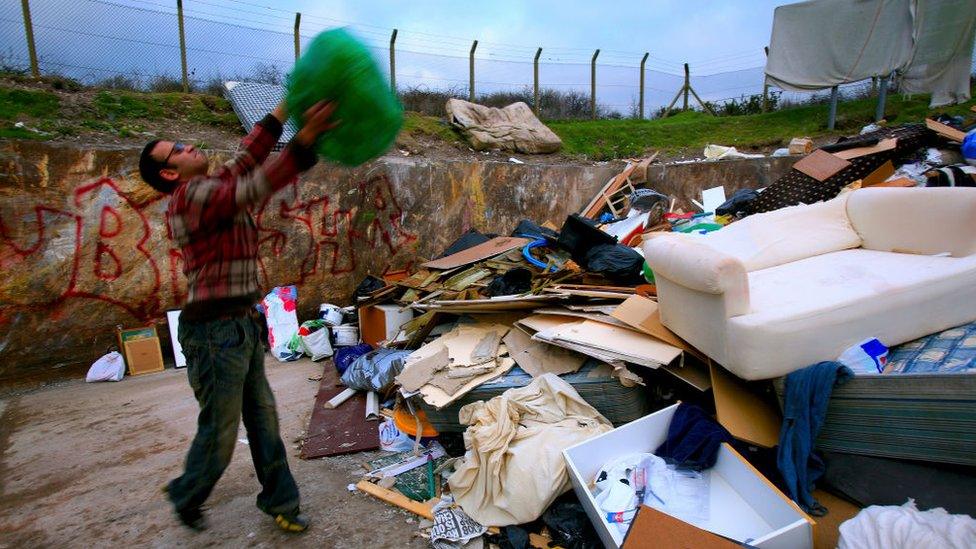
More waste could be sent to landfill in the UK after a no-deal Brexit, a major waste company has told the BBC.
There are worries a no-deal outcome will disrupt the export of millions of tonnes of waste to facilities in the EU, so it will have to go to landfill.
It would harm the environment and pile millions of pounds of extra costs onto councils, insiders say.
The Environment Agency said it expected firms to find suitable solutions.
"We are encouraging businesses who export waste to consider and continue to plan alternative options in case of disruption at borders," a spokesperson for the government agency said.
Internal documents outlining local councils' preparation for a no-deal Brexit, seen by the BBC and backed up by waste industry sources, suggest there is a high level of concern among local authorities around the issue of waste, with a significant number of councils rating the possibility of disruption as medium or high risk in their Brexit contingency planning.
Meanwhile, the UK waste industry's trade body has warned a disruptive no-deal Brexit could mean rubbish from the more densely-populated South East being sent to landfill in northern England.
Currently three million tonnes of UK domestic waste is exported to the EU annually for recycling or to be used as refuse-derived fuel.
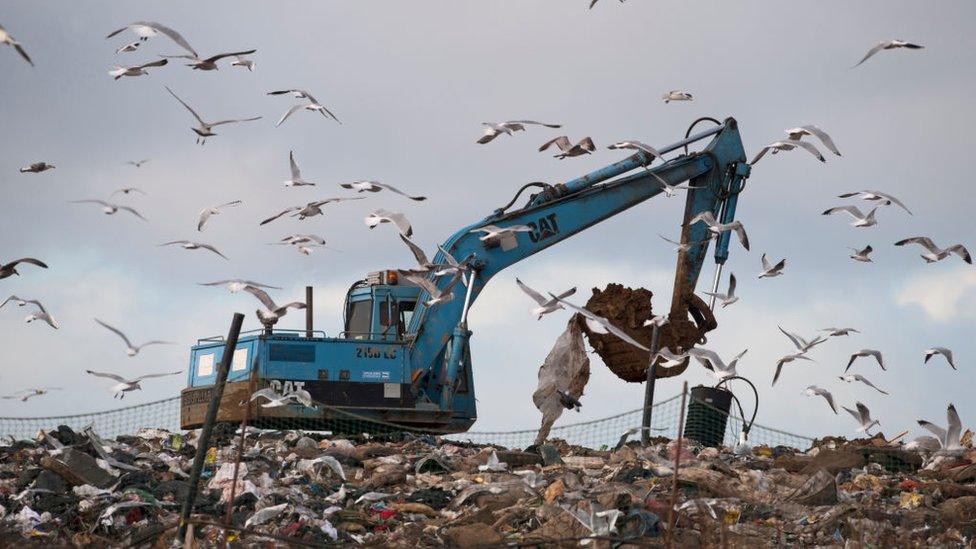
Southampton City Council, in an internal document prepared ahead of the previous Brexit deadline, said that port delays "could result in recycling banks and waste transfer stations becoming full and potentially closing". In that event recyclables might have to be diverted to landfill or to refuse-derived fuel stations, the document said.
The main concern within industry is that the practice of sending black-binned household waste to Germany, the Netherlands or Scandinavia will either be physically prevented or delayed by port congestion following a no-deal Brexit.
It could also become uneconomical because of a combination of further falls in the value of the pound and the imposition of World Trade Organization tariffs following a no-deal outcome. It is currently not clear whether the trade is classed as importing a service - waste processing - or exporting a good - a type of fuel.
Suez, one of the market leaders in the sector, believes this is likely to lead to the UK falling short of current waste management targets.
"In the various impacts we've looked at, as a result of a no-deal Brexit, we do know that there'll be some lowering of those environmental performance indicators that we are all trying to strive to achieve," Stuart Hayward-Higham, technical development director at Suez, told the BBC.
"One of the outcomes of a no-deal Brexit will mean that we will put more to landfill," he said.
Whether it is due to congestion at ports or cost pressures on Suez's customers, Mr Hayward-Higham believes in the short to medium term it will be hard to find any alternatives.
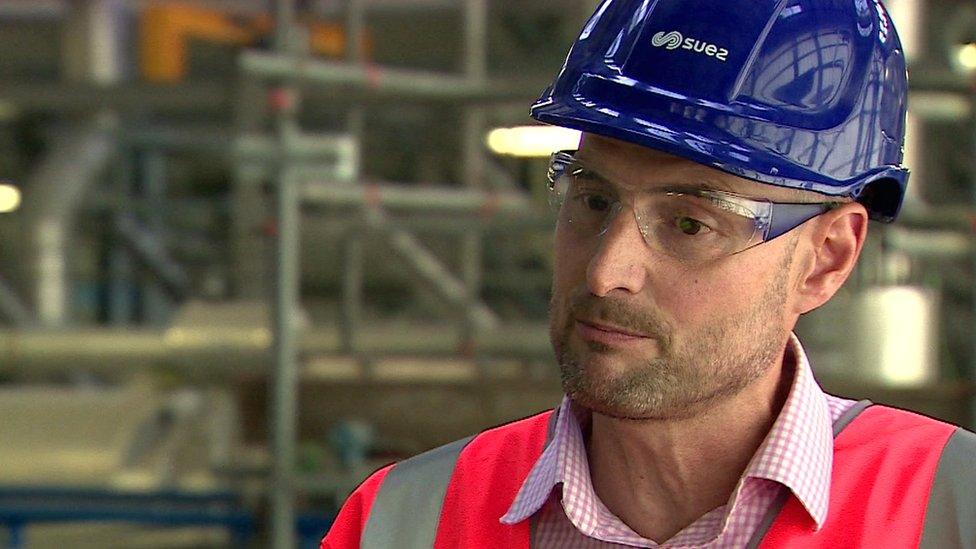
Stuart Hayward-Higham from waste firm Suez says in the short term more waste is likely to go to landfill if a no-deal Brexit disrupts the industry
The situation is better than it was a year ago, however, as the Department for Environment, Food and Rural Affairs (Defra) has successfully negotiated the continuation of the trade in waste, with individual regulators in EU nations.
In the no-deal preparation documents, councils also referred to several shorter-term risks to waste collection, arising from localised congestion and fuel supply problems, and listed some possible approaches to lower their impact.
Some councils are stockpiling bin bags and wheelie bins. In one case even new bin lorries were fast-tracked to beat the March Brexit deadline.
Braintree Council, for example, in April listed among its high risks the knock-on effect of transport and fuel problems and that it might have to "consider reducing allocations of [bin] sacks per household to eke out supplies".
Sevenoaks Council suggests a park and ride could be used as a temporary site for waste. It said road congestion "leading to late or no collections will impact on the community stockpiling waste in gardens or streets".
Milton Keynes council has asked waste sites whether they can accommodate increased amounts of waste.
Jacob Hayler, who runs industry body the Environmental Services Association, told the BBC that councils' concerns were mainly reasonable worst-case scenarios that would materialise only in a more general crisis around transport congestion and fuel issues.
He added that the government deserved credit for guaranteeing the ongoing legal framework, enabling waste exports to continue.
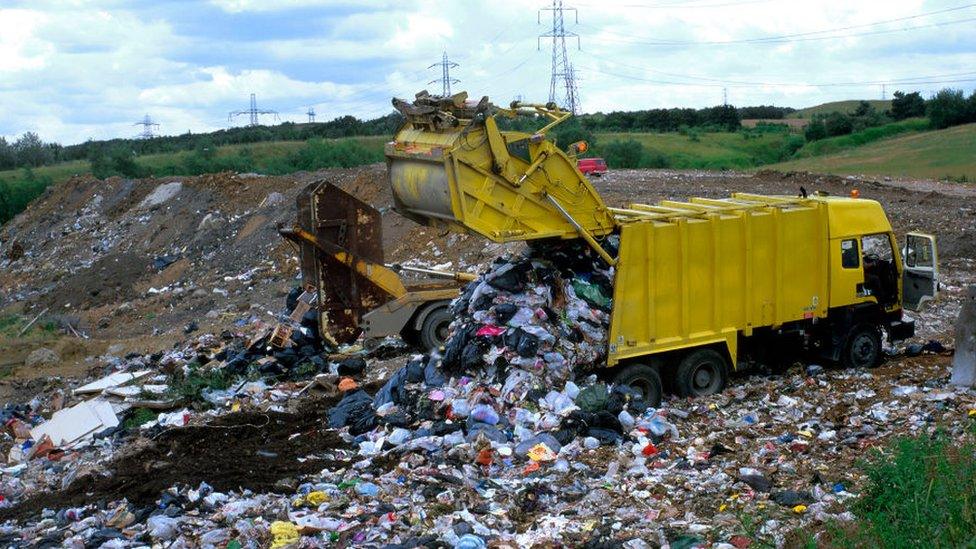
However, Mr Hayler said waste was difficult to store "so you can't have it all just piling up at the docks".
A more sustainable solution such as building more domestic "energy from waste" plants would take too long he said, leaving landfill as the only option.
He suggested that mothballed landfill sites, mainly in the north of England, could be required to take up the slack instead.
The most waste is created by big population centres in the South East, with very little landfill capacity available there. Therefore less densely parts of the country might be needed to accept overflow.
"It would have to start being trucked from the ports up to those landfill spaces further up north and stuck in a hole in the ground. And that's something that we would really like to avoid," Mr Hayler said.
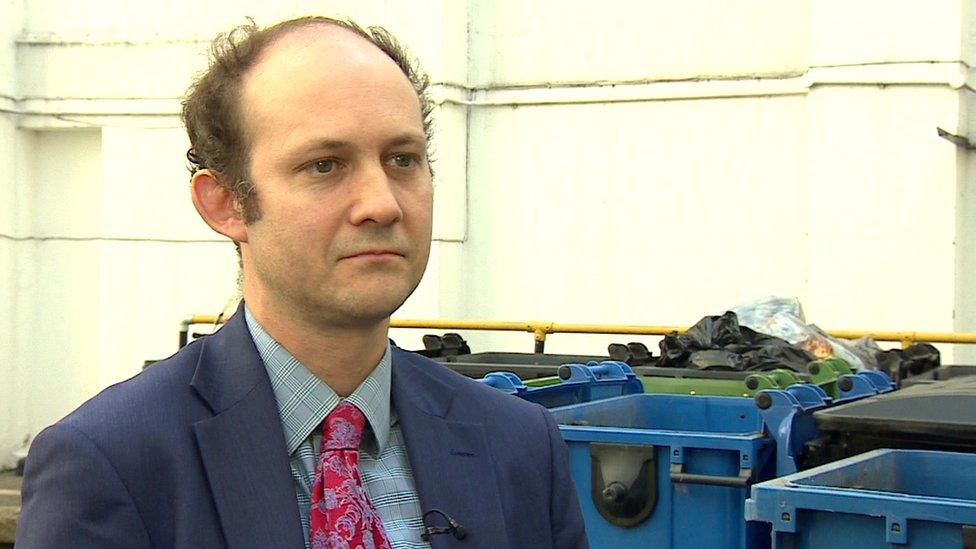
Jacob Hayler representing the waste industry says northern landfill sites might be required to take waste from southern England
The government has said it will respect the new stringent EU "Circular Economy Package" limit of 10% of household waste going to landfill by 2035, even after Brexit. Currently around 20% is sent to landfill, having fallen from 80% in 2001, mainly as a result of the UK application of EU regulations on landfill and recycling.
The Environment Agency said that it had worked with industry to assess the availability of landfill sites that could accept waste that would have been exported. Even if disruption were to occur waste exporters would be expected to make contingency plans that meant they met the high environmental standards that are the conditions of their permits and licences, it said.
"Even in a no deal situation, we will continue to expect all waste operators to adhere to the conditions of their permits and will not hesitate to take appropriate action otherwise," an agency spokesperson said.
- Published20 August 2019
- Published19 August 2019

- Published11 October 2019

- Published31 July 2019
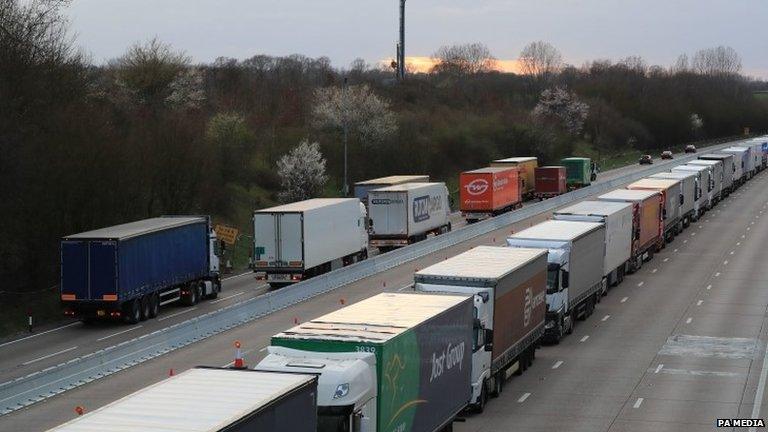
- Published30 July 2019

